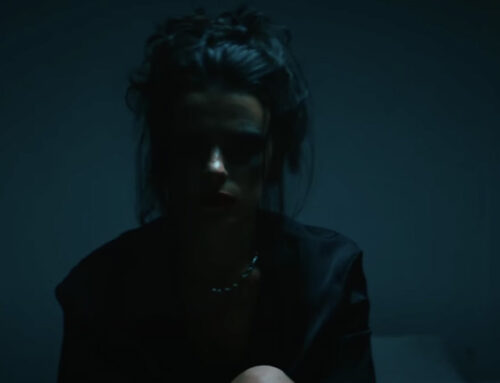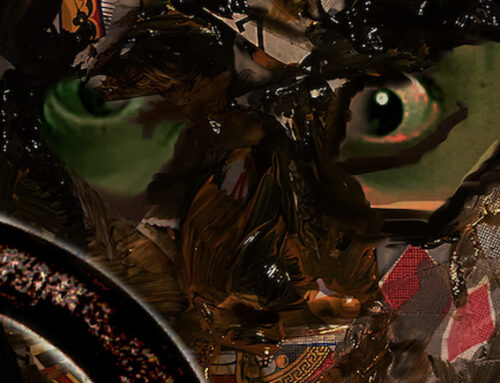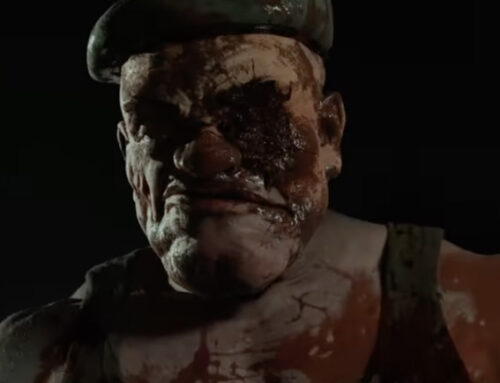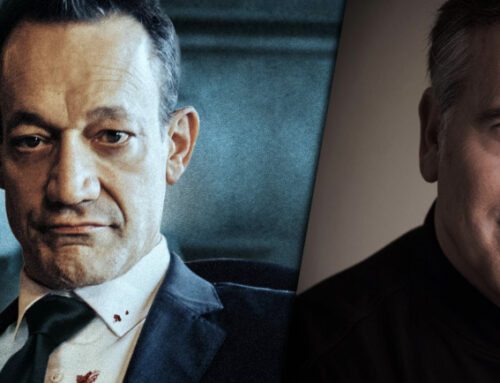Tribeca Virtual Experience – Intimate, innovative, intelligent, and informative — I am not at a loss of praises to sing for The Severance Theory: Welcome to Respite. Making its world premiere at the prestigious Tribeca Film Festival in its 2021 lineup of virtual reality experiences, The Severance Theory: Welcome to Respite is one such VR experience that amazes with immersive storytelling, audience interaction, and a beautifully built world that would be hard to leave were it not for the monsters lurking within its lines of code. TST: WTR is not like any VR show I have seen before, it truly feels like stepping into another world and it is one of the most interactive immersive experiences that I’ve ever had the pleasure of attending! It is a live-action show that places an audience member — whosoever purchased the premium ticket — directly into the shoes of the main character, Alex, drifting through childhood memories on the whim of his mental illness.
HorrorBuzz’s own Brian Tull (HB Staff Writer and VR World Builder of TST: WTR) and Jeff Heimbuch (HB Editor and TST: WTR Voice Actor) joined the talented joint-production team of CoAct Productions and Ferryman Collective to create a VR experience that addresses the horror of struggling with Dissociative Identity Disorder — formerly known as Multiple Personality Disorder. Due to my bias of knowing Tull’s and Heimbuch’s immense talents, I admittedly had a baseline expectation for this project to be good, but the creativity and care put into this project far — and I mean far — surpassed my initial expectations, as The Severance Theory: Welcome to Respite blew me away with great voice acting, incredible graphics, and heartfelt and relatable storytelling.
TST: WTR tells the story of Alex (voiced by an audience member), who, while visiting his childhood home, suddenly has a memory dislodged, one which he and the audience are subsequently pulled into. For all intents and purposes, the now seven-year-old Alex seems to live in a wholesome, supportive home with a mom (voiced by Whitton Frank for my show) and a father (voice by Christopher Lane Davis for my show), however, other entities live with Alex as well. A voice inside Alex’s mind, one of which is called “The Shadow” (voiced by Morghann Stevens) taunts Alex with lies that he is selfish, unloved, and that he doesn’t deserve his parents. Alex’s steadfast mother and father try their best to show him the love that he needs and the patience to guide him, despite their own miscommunications at times, but Alex primarily turns to another voice in his head named “Kyle” (voiced by Jeff Heimbuch), that protects Alex and stores away traumatic memories. As we follow Alex through this memory from his adolescence, we see him oscillate between moments of respite, and at other times, moments of terror as he succumbs to the nightmarish moments that the voices create inside his head.
Attending the experience called for the participants to be “alters”, that is, part of Alex’s system of personalities that help him combat the darkness that The Shadow brings. During my experience, The Shadow’s movements were played by Christopher Lane Davis in addition to his primary role as the father, and in both performances, his body acting shined through, perfectly conveying the playfulness of a father and the disjointed, otherworldly movements of a monster. The mother during my show was played by Whitton Frank, and her performance carried incredible voice acting, sounding like a mother right out of a Disney/Pixar movie. The story alludes to there being further background information on what exactly caused Alex’s trauma, but being that this show is only the first of a four-part series, I imagine the rest will be told as the series unfolds. At the same time, from this chapter alone, a good sense of the family dynamic is portrayed in the many side conversations these family members hold over the course of the half-hour experience. Though the dialogue and character development were shaky at first, once the unscripted audience member got more comfortable with interacting with the parents, I felt the story really found its groove and I was able to be completely caught up in Alex’s world.
Despite some technical issues I experienced through the show’s platform, the VRChat app, the hiccups were long forgotten by the time I was inside the family’s beautiful home, getting caught up in the magic of stellar celestial graphics and being petrified by the nightmarish creation that was “The Shadow”. The team behind this VR experience shows they not only care about this show but that they also care about you, the audience member, as they offer highly informative chunks of information about DID both during the show and afterward on the plethora of boards displayed in the post-show reception room that had numbers to hotlines and definitions associated with the illness. The Severance Theory: Welcome to Respite is emotionally charged and some may find it uncomfortable and unsettling, but the story is grounded in the intention of ending stigmas against mental illnesses, and for this important subject matter, it is a good reason to be uncomfortable. Though the material may be difficult, TST: WTR‘s natural approach to crafting the character dynamics makes the story digestible — and I, for one, ate it up.







